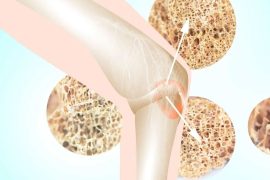Polycystic ovary syndrome (PCOS) is a hormonal disorder characterized by elevated levels of androgens, leading to symptoms like menstrual irregularity, excess hair growth, acne, and obesity. One significant dietary recommendation for managing PCOS is to go dairy-free. Dairy products can exacerbate insulin resistance, a common issue in PCOS, which can further worsen symptoms. By eliminating dairy, individuals with PCOS may experience improvements in insulin sensitivity, reduced inflammation, and clearer skin. This dietary adjustment can contribute to overall management of PCOS symptoms and promote better metabolic health.
Here are a few reasons why some healthcare professionals may advise cutting out dairy for PCOS management:
- Hormonal Imbalance: Dairy products contain naturally occurring hormones, such as estrogen and progesterone, as well as synthetic hormones given to dairy cows for production purposes. For individuals with PCOS, who already have imbalances in sex hormones like estrogen and testosterone, additional hormonal intake from dairy products could potentially exacerbate symptoms.
- Insulin Sensitivity: Insulin resistance is common in women with PCOS and can contribute to weight gain and difficulty in managing blood sugar levels. Some research suggests that dairy consumption may negatively impact insulin sensitivity in certain individuals, although more studies are needed to fully understand this relationship.
- Inflammation: Polycystic ovary syndrome is associated with chronic low-grade inflammation, which can worsen symptoms and contribute to long-term health complications such as cardiovascular disease and diabetes. Some evidence suggests that dairy consumption may contribute to inflammation in susceptible individuals, although research in this area is ongoing.
- Digestive Issues: Many people, including those with PCOS, may experience digestive discomfort or intolerances to lactose (the sugar found in milk) or dairy proteins like casein and whey. Eliminating dairy products can alleviate these symptoms and improve overall digestive health.
- Nutrient Intake: Dairy products are a significant source of calcium and vitamin D, which are important for bone health. If eliminating dairy from the diet, it’s essential to find alternative sources of these nutrients to prevent deficiencies. Non-dairy sources of calcium include leafy greens, fortified plant-based milk alternatives, tofu, and almonds, while vitamin D can be obtained from sunlight exposure and supplements.
It’s important to note that individual responses to dietary changes can vary, and there is no one-size-fits-all approach to managing PCOS through diet. Consulting with a healthcare provider or registered dietitian who specializes in PCOS can help individuals create a personalized nutrition plan that addresses their specific needs and preferences. Additionally, more research is needed to fully understand the relationship between dairy consumption and PCOS symptoms to provide evidence-based recommendations.
Disclaimer:
The information contained in this article is for educational and informational purposes only and is not intended as a health advice. We would ask you to consult a qualified professional or medical expert to gain additional knowledge before you choose to consume any product or perform any exercise.






